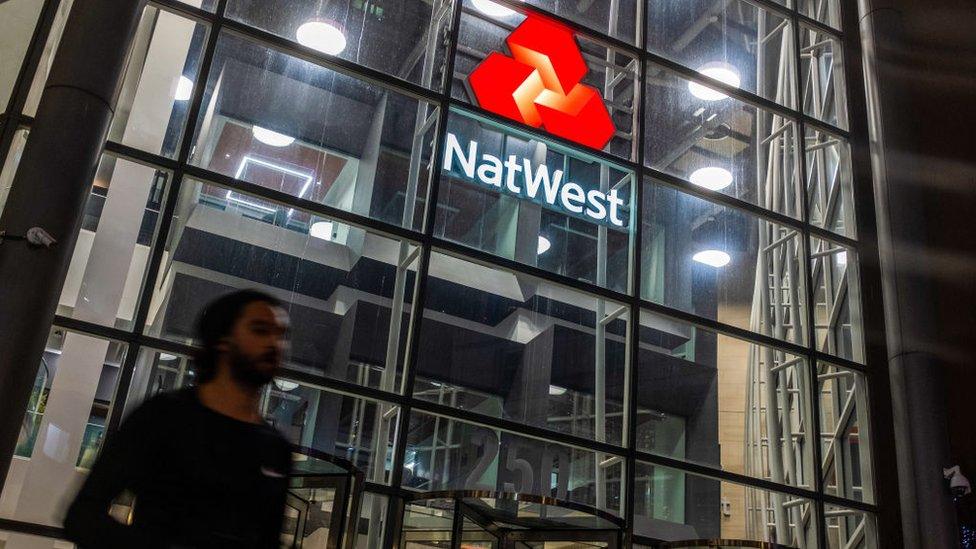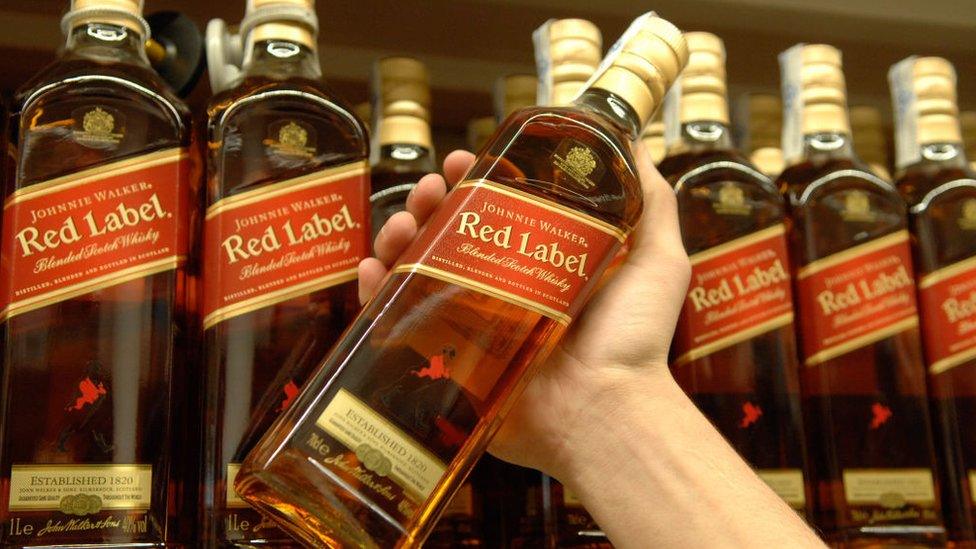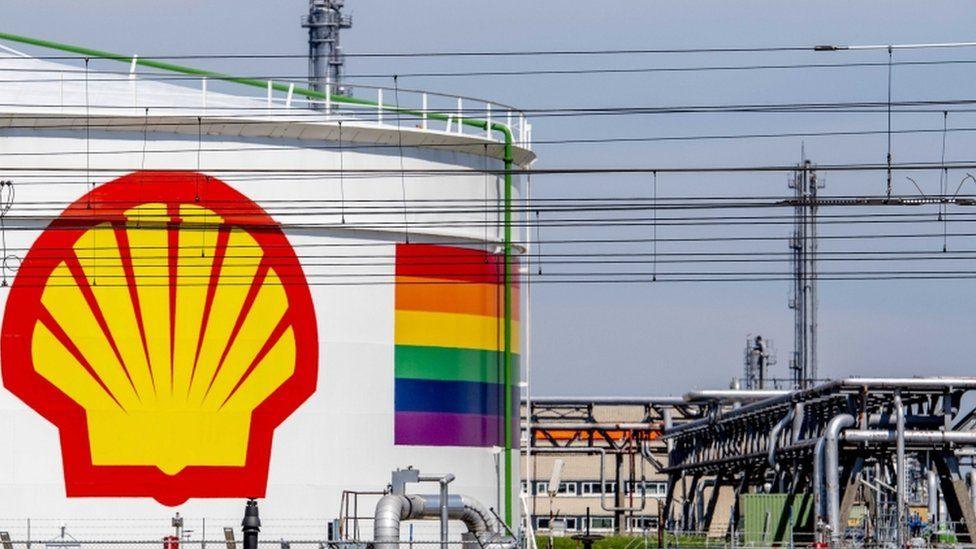Adopting the recovery position
- Published

There are headwinds to the economy, mostly from the continued uncertainty of the virus, and also from inflation and skill shortages. But there are growing positive signs, and recent big corporate figures point to a robust recovery in sales and profits.
Banks are taking money out of their bad loan pots, as things look up, and larger companies in Scotland are reflecting activity overseas. It is the global tech giants that are producing breathtaking sales.
The cost of having staff on furlough is up with the start of August, to 20% of wages. As it ends next month, that remains the biggest threat of a jobs crunch.
By the end of June, 141,000 Scots were furloughed, down from 175,000 in late May, and with vacancies high, numbers were on the way down.
Across the UK, furloughed workers were down by half a million in the same period, to 1.9m, and a survey out this week from the Office for National Statistics points to that being down to between 1.1m and 1.6m during July.
The threat of that crunch point as furlough ends is weakening, but still significant, while uncertainty hangs over companies facing deferred VAT bills and servicing much higher debt as a result of Covid, while many have depleted cash reserves and stunted earning opportunities where social-distancing restrictions still apply.
Some sectors remain in dire straits - notably international travel and the events and late-night economy where being crowded is the point.
There are big medical threats as well: of rising infection and hospitalisation rates, of more variants, of mass self-isolation feeding through to supply chain problems, of the known unknowns of long Covid, weighing on both the health service and on employers.
'Ahead of expectations'
But there are also clear signs that the economic recovery is beating expectations.
The quarterly monitor of 500 companies in Scotland by the Fraser of Allander Institute, sponsored by Addleshaw Goddard, showed a marked improvement in the number of firms that expect to continue trading through the next six months - from 83% at the end of last year, to 92% in the second quarter of this year.
Even in accommodation and food services, which have been hard hit, but which are emerging into a lively staycation season, expectations were the most positive since 2014.

Natwest has reported sizeable profits
The outlook for growth was not so good. The official May figure, of 0.9% growth, looks good. Output remained 2.7% below the pre-pandemic peak. Both figures were marginally better than the UK as a whole. But prospects for both are more sluggish into the second half of this year.
What is really striking is the positive momentum from corporate results. This is only part of the economy - the part which is publicly accountable to shareholders. But across reports, the words that keep cropping up are "ahead of expectations".
That is partly because expectations were so poor, due to so much uncertainty. It is also because the fog is lifting to show consumer sentiment is strong, with unusually-high savings of the past 18 months being unleashed by consumers.
Unwinding bad loans
Just some of the companies with a headquarters or a big presence in Scotland, over recent days, and ahead of the August shut-down for many:
NatWest, formerly known as Royal Bank of Scotland and still notionally HQ'd in Edinburgh, reported sizeable profits, but also a healthy reflection on its huge business client base. Gloomy prospects for bad debt this time last year have been downgraded by £700m.
Some £190m of those profits is going into dividend payments to its majority shareholder, the UK government. And in case you missed it, that remaining 55% public stake, resulting from the 2008-09 bailout, is to be cut by up to 15 percentage points over the next 12 months, if the price is right.
The share price, of course, is nowhere close to break-even for the taxpayer. It's well up on the start of this year, at above 200 pence, but less than half the price at which the bailout took an 82% stake. The share price should be helped upwards by ploughing excess capital into buying back shares.
Lloyds Banking Group soared past analyst expectations to a £3.9bn first-half profit. This time last year, its £3bn set-aside for bad debts took the Bank of Scotland owner deep into a half-year loss. Of that, £656m is being unwound from dud loan provision. Barclays reported on a "resurgence in activity".
A further, modest unwinding of the money set aside for loans turning sour was in the half-year results for Virgin Money, formerly known as Clydesdale Bank and based in Glasgow. It is taking £19m out of that fund, and leaving £678m in place.
Across the main lenders, there's growing competition for mortgage business reflecting and fuelling strong house price increases. That should mean better deals for customers and less profitability for banks.

Diageo, the biggest distiller of Scotch whisky, successfully pivoted to the off-trade with the pandemic, and it's successfully pivoting back to bars. Particularly in the US, bars are filling up again, and so are spirit glasses.
Disruption to the way people drink continues to hit Guinness, which is also a Diageo product, and is down 23% in Ireland. But a long-term shift from beer and wine towards spirits may have been accelerated.
Menzies Aviation. No longer delivering newspapers, the Edinburgh-based global ground-handling firm reported a "very strong" start to 2021. It is evident, again, that market disruption, in this case in aviation, has led to opportunities to grab market share.
Cargo has been strong, to replace the loss of passenger airliner bellies in which to pack traded goods. The firm has a joint venture in China, a big expansion in Miami, Europe's air travel sector is the only continent that continues to struggle.
In Aberdeen, First Group's financial results for the year to March turned to profit, reflecting a huge injection of public subsidy to keep its buses running, while it cut costs. Passenger numbers have returned to around 60% of pre-pandemic levels.
It has been retreating from North America, with the £3.3bn sale of its yellow school bus and transit divisions bringing the ire of big shareholders for valuing them too cheaply. The chief executive, Matthew Gregory, is quitting under the pressure.
Tech boots up
The global reach of the recovery was evident from earnings announcements in energy and mining companies, also pouring capital into share buybacks - a form of returning value to shareholders by increasing the prices and, not coincidentally, a way for chief executives to maximise their bonuses.
After last year seeing oil prices plunge, this year saw Shell boost its dividends. Nestle had its strongest first half in a decade.

Shell shareholders have seen a dividend boost
The most astonishing figures come from the tech giants, riding the wave of lockdown and home-working while also benefiting from the reopening of the economy, boosted savings and America's huge fiscal stimulus.
Microsoft's cloud computing division saw growth of more than 50%. Google's online advertising was up by nearly 70%.
Apple sold more than 50% more iPhones, helping lift total sales to $81.4bn in only three months, up by 36% on last year, and strong growth in all its divisions, notably the US, China and in non-hardware services.
Facebook then weighed in with bumper profits. The social media mega-corp reported second quarter revenues were up 56% to $29bn. Because it sells advertising on the basis of demand rather than an old-fashioned rate-card, the boom in that online ad market saw prices rise 47%.
The company also issued a warning: that this rate of growth can't continue indefinitely. The tech sector has seen far too much froth before, followed by some painful adjustments.
Financial distress
Closer to home, the economy is a long way from being out the pandemic woods. Insolvency specialists at Begbies Traynor reported this week on growth in the signals of financial distress for Scottish companies, and notably those that fly beneath the stock exchange radar.
During the second quarter of the year, more than 33,000 companies were reckoned to be showing signs of distress, including arrears on loans. That's 24% up on last year, which ought to be no surprise. UK figures are in line with that.
That Fraser of Allander business monitor points to 8% of firms being unsure if they'll survive the next six months, and only 51% say they're trading at least normally. Clearly, that's not yet normal.